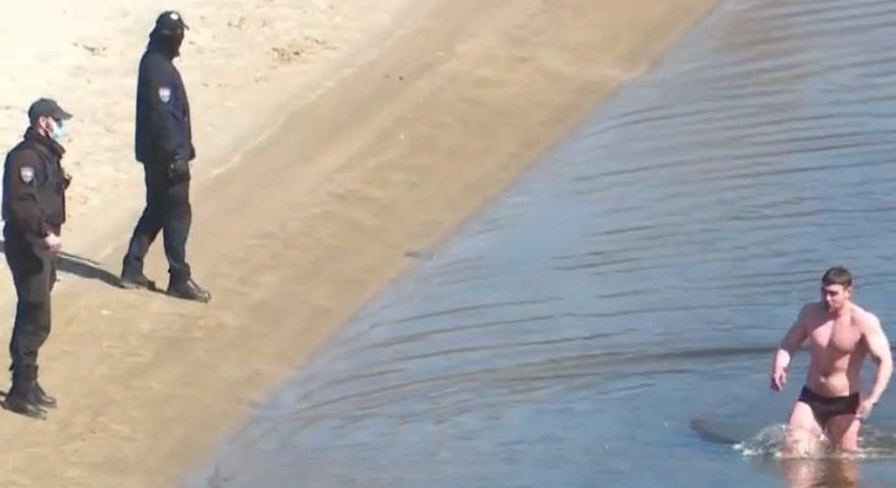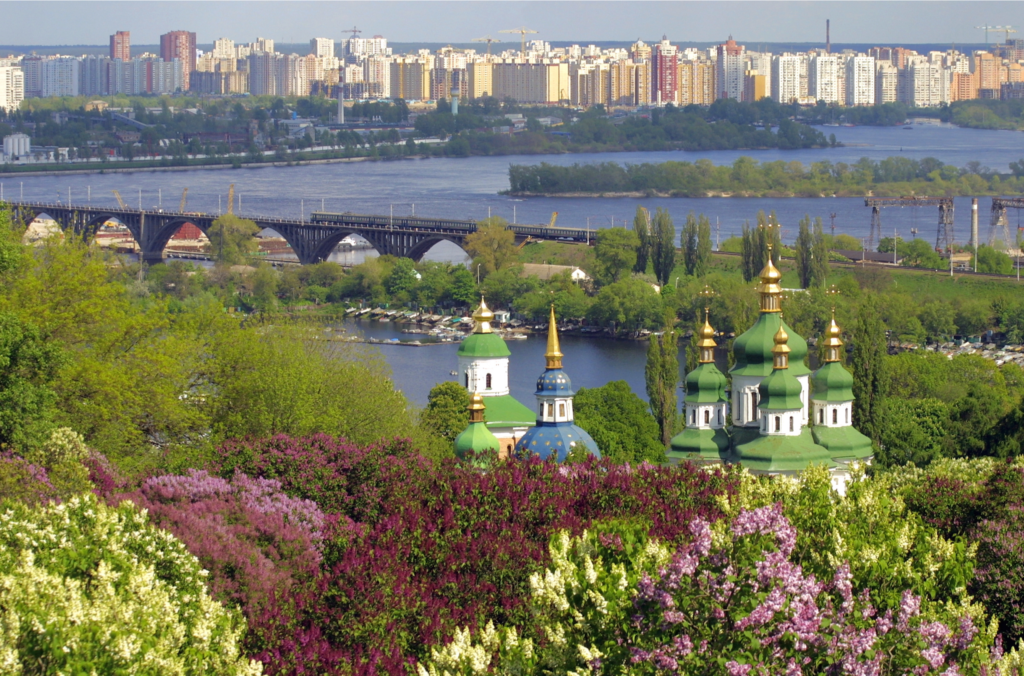Perspective from Kyiv, Ukraine
The W.H.O. declared coronavirus a global health emergency in late January. Spain announced the first coronavirus death in Europe and Italy locked down 10 towns in mid-February. In early March, however, we still went to work and gathered with friends in cafes. We still lived a normal life despite being the closest European country to China.
Ukraine is the biggest European country by area and top ten by population. Still, when I tell people I’m from Ukraine, I often hear the clarifying question “from the UK?” This helps explain why coronavirus got here slowly. We’re poorly integrated into the global economy and not many people fly in or out. We’re not a major tourist destination, even less so since the MH17 crash in 2014.
The virus hit other countries harder, but we were hit simultaneously with dangerous levels of air pollution. Plus, the controlled border inside Ukraine has made it impossible for many (including me) to see their families. To us, however, this is nothing. We are Europeans with an extensive and tragic history. Generations of conflict with neighboring states. Chernobyl in 1986. Lack of sustained independence until 1991. The Russian Occupation in 2014 and the continued war in Donbas. These tragedies only strengthen our patriotism.


Quarantine in Ukraine
We recorded our first case of coronavirus on March 3, 2020 in Chernivtsi, a city close to the Romanian border. The government announced the first lockdowns in mid-March, about the same time India announced their lockdown. Even after the lockdown was announced, my life in Kyiv, the capital city, remained relatively normal. Our public transport was still partially working, offices were open, and people went to work as usual. People in Kyiv were indignant when the first precautionary measures were introduced, especially the metro closing. 1.3m of Kyiv’s 3.7m population ride the metro daily. It’s the main way to get around the city and we were not told when it would reopen.
As the virus spread, quarantine measures intensified and caught up with many European countries. All shopping centers, restaurants, and shops closed, public transport stopped working, and we were not allowed to walk in parks or other public places. We could only go to the grocery store and pharmacy wearing a mask. Despite increasing numbers of infections, many resisted the new reality. One guy wanted to exercise so badly he swam across the Dnipro river to the Hydropark training zone when the bridge closed. The police met him on the other side.
It’s Only 3.6 Roentgen
By mid-April, most Ukranians accepted the need for quarantine. We thought things couldn’t get worse, but a dense smog began to spread over Kyiv. The forests were burning in the north of Ukraine and the fire was going in Chernobyl’s direction.
Strong wind made it impossible to extinguish the fire and the smoke got increasingly dense. You could smell it in our apartment, as if it were burning right outside the door. Kyiv became the world leader in the poor air quality. “Sad championship,” I thought. The next morning, my wife, several friends and I drove 500 km (around 260 miles) from Kyiv to escape the harmful air. We rented a house in a picturesque spot among forests and nature. The homeowners avoided us. In their eyes, we were strangers from the most infected city. We waited out the fires there but most people didn’t have that luxury. They were locked down with air quality that was dangerous, especially for people with asthma and heart problems.
As the forests burned, people worried not only about air quality, but also about radiation levels. We were concerned that wind would move radioactive dust and smoke from the fires in Chernobyl to the city. Our government said radiation level in the Chernobyl zone had increased but were still in an acceptable range. Thanks to the HBO series (which I really liked), 12 million viewers around the world learned what we already knew – we can’t really trust our government to tell us how serious the radiation dangers are.
Fortunately, the fire was extinguished, and the situation returned to normal. A week later, we returned home and air quality improved. We no longer had the worst air quality of any country in the world. We were number 77.
Work From Home (WFH)
I had a prestigious job at one of the Big Four accounting firms until our currency devalued by ~240% in 2014 and 2015. To make up for lost purchasing power, I registered as a freelancer on Upwork. In one weekend, I earned nearly two weeks pay and realized I was better off freelancing. I’ve been working full time as a freelancer since 2016, and joined Razorhorse in late 2017. So, quarantine hasn’t radically changed my work.
In fact, remote work has been better for my health. During busy season at the accounting firm, I worked 100 hour weeks. I got home at 2am and was back at work by 10am. I was exhausted and my blood pressure became an issue. At times, I felt dizzy, couldn’t focus, and felt tired all the time. I also lost weight and had neck and back pain.
Groundhog Day
Although my work life didn’t change, it was hard to adjust to a personal life with no leisure activities. Gyms, cinemas, cafes, and all other entertainment centers are closed. We feel like Bill Murray in Groundhog Day. Every day we wake up, and the routine is the same. Fortunately, quarantine doesn’t limit private transport here like it has in some other countries. On weekends, we drive out of the city and spend the day at the closest lake or forest. We walk, have a picnic, and I practice photography (a new beloved hobby). We are lucky we can change scenery and chill outside. The police only stopped us once. They asked us why we were driving through a particular city instead of using a bypass road, but they let us go with a warning.
Separated from Family – Russian Occupation
The worst part of quarantine life is that I can’t see my parents. I moved to Kyiv in 2014 from the city of Donetsk, which is in the contested Donbas Region at the heart of the ongoing conflict. Russia occupied part of the territories of eastern Ukraine but my parents decided not to move. They’d lived all their lives near Donetsk and couldn’t see their life anywhere else.
Donetsk is 730km (430 miles) from Kyiv. Since 2014, the journey requires a train trip to the controlled border, waiting in the queue for passport control, and then walking 2km through the ‘neutral zone.” On the other side of the neutral zone, you have to show your passport again and explain the reason for your trip. Pre-COVID, the whole journey took about 12-15 hours, but it’s not even possible under quarantine. The trains aren’t running, and even if they were, it’s not possible to enter or leave the occupied territory.
Looking Forward
To date, almost 20 thousand people have been infected with coronavirus in our country. We are fortunate the virus did not spread as rapidly as it has elsewhere, because our medical system would have quickly collapsed. According to official statistics, we have 8 ventilators per 100,000 people, similar to Italy but we don’t have enough personal protective equipment. As a result, 18% of infections in Ukraine are medical workers versus 2% in the US.
Low-income citizens and businesses pressured the government to ease restrictions once new infections reached a plateau. Cafes, terraces and individual shops are open now and the government says public transport will resume soon. It’s too early to say the crisis has passed, but I want to believe the situation in my country will return to normal soon, and I’m happy restrictions were applied at an early stage.
Many people have become accustomed to working from home, training with a gym coach via webcam, or having Friday drinks with friends on Zoom. My wife was initially stressed by the WFH format, but recently told me she would continue to work this way even after the quarantine ends. We have freed up time for ourselves that we used to spend moving around the city. We’ve replaced delivery pizza and burgers with tasty and healthy home-made food. With the borders closed, we’ve explored many interesting places around Kyiv that we didn’t have time to visit before. This summer, we plan to camp along the Black Sea coast. And of course, I would like to see my parents as soon as possible.
So, keep calm, stay safe and positive, and wash your hands!

